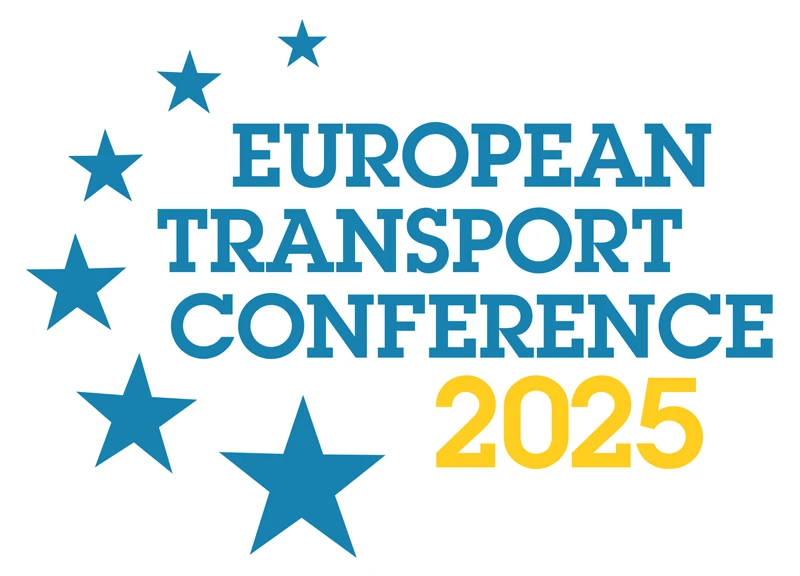-
Past ETC Papers

Browse, search and view papers from the past AET Conferences.
-
Members' Area

AET promotes networking and exchange of ideas, information and opportunities amongst members.
Conference Papers 2018
Dublin, Ireland
ETC Conference Papers 2018
Motion Hub, the implementation of an integrated End-to-End Journey planner
Seminar
Day 2 (11 Oct 2018), Session 5, Mobility as a Service, 11:15 - 12:45
Status
Accepted, documents submitted
Submitted by / Abstract owner
Keith Bevis
Authors
Eur Ing Dr Keith Bevis - Visiting Lecturer (previously Senior Lecturer) in School of Engineering and Technology at University of Hertfordshire and Managing Director of EValu8 Transport Innovations Limited
Dr Scott Copsey - Senior Lecturer in Sustainable Transport in Department of Geography, Environment and Agriculture at University of Hertfordshire
Russell Fenner - Head of Innovation, eCar Club Limited.
Short abstract
Motion Hub is a website that integrates public transport booking with the hire of electric cars or bicycles, together with the physical local spokes providing public access to those vehicles in a demonstration of live multifaceted end-to-end journeys
Abstract
The term “eMobility” and been brought into use partly to encourage use of electric vehicles but more especially to focus on the transformation from electric vehicles as products to electrified personal transport as a service. Under the wider umbrella of Mobility-as-a-Service (MaaS) this has accompanied the growth of car clubs in general. The Motion Hub project has taken this concept a step further to include not just the car journey but the end-to-end journey. The booking of multifaceted journeys is well established in the leisure and business travel industries, where flights, car hire and hotels are regularly booked with a single transaction on a website. To complete an end-to-end scenario Motion Hub provides integration of public transport with electric vehicle and electric bike use.
Building on a previous InnovateUK funded project that reviewed the feasibility of an integrated journey management system, the Motion Hub project has brought together a Car Club, a University, and EV infrastructure company, a bicycle hire company with electric bicycle capabilities and a municipality to implement a scheme and test it on the ground. At the heart of the project has been the development of a website that integrates the public transport booking with the hire of electric vehicles or bicycles. Taking the implementation to a fully working system accessible to members of the public presents a number of significant challenges. This paper identifies those challenges, details the progress and success of the Motion Hub and sets out the lessons learnt about end-to-end travel.
The project was fortunate to have as its municipal partner the Council of a sizeable South East England town, Southend-on-Sea. With a population of 174,800 residents with good road, rail and air links there is considerable traffic in and out of the town. The Council has already shown its commitment to sustainable transport. In the previous six years it had installed a number of electric vehicle charging points for use by the public and latterly had trialled car club activity.
An early challenge in the project was the location of physical infrastructure in an already crowded municipal space in order to provide the local ‘spokes’ of the system. In addition to its existing charging points, Southend now has four locations where electric cars can be hired, five where electric bikes are available and the local resources to maintain these assets.
Combining a number of web-based services and amalgamating their financial transactions is relatively straightforward. However, introducing the potential for public transport ticketing as well raises additional security, scale and financial constraints. The project has engaged with major players and regulators across the public transport industry.
In the latter stages of this two year project, the Motion Hub was rolled out to the public. The various individual services became available from the single website via one membership application and the use of a single card. . The challenge here has been engaging the public and encouraging a change in behaviour. The project has revealed a number of challenges associated with this particular implementation of MaaS and finally recommends both comparative analysis of a set of Maas implementations and using early usage data as a key design tool.
The project was part funded by InnovateUK. The project partners have been eCar Club Limited (now owned by Europcar), UH Ventures Limited and EValu8 Transport innovation Limited (both owned by University of Hertfordshire), Hourbike Limited, Transport Systems Catapult and Southend on Sea Borough Council.
Programme committee
Intelligent Mobility - Management and Operation
Topic
New Mobility patterns, Digitisation and Mobility as a Service
Documents:


Association For
European Transport
Forester House
Doctors Lane
Henley-in-Arden
Warwickshire, UK
B95 5AW
+44 (0) 15 64 793552
VAT number: 710 1866 64
Conference Supporters & Endorsers




Legal Entity
The Association for European Transport is registered as an Association ('vereniging') with the Chamber of Commerce for Haaglanden in The Netherlands under company number 27170096.
Built on Zenario




